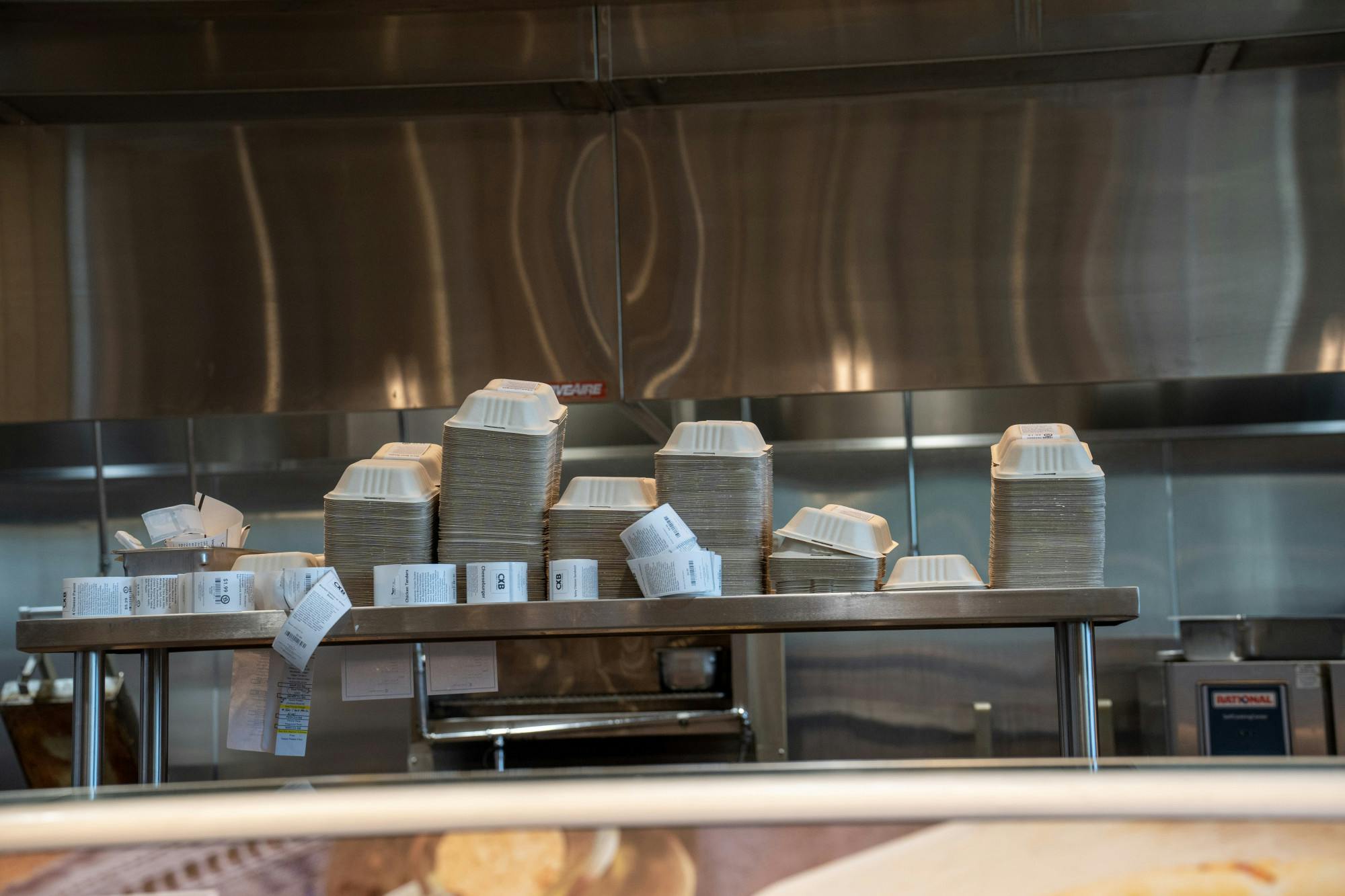Since the start of the new academic year, students have been disappointed by MSU’s dining halls, many of which have been offering exclusively disposable plates, bowls, cutlery and cups.
“I wish they would use real plates and things like that more, there’s just a lot of plastic and waste everyday," chemical engineering sophomore Leni Leipertz said. "There are thousands of kids that eat at the dining halls, and I think it’s just too much."
MSU has been transitioning some dining halls to reusable plates and silverware, most notably the Brody Commons. But, MSU Culinary Services could not tell The State News exactly where reusables were being used, because it varies day-to-day based on staffing.
According to MSU culinary services, exclusive use of reusables would be ideal, but labor shortages have stopped them from fully transitioning.
“We do still fully anticipate transitioning all of our dining halls by the first week of October. However, that will be dependent on staffing,” culinary services spokesperson Cheryl Berry said in an email.
Berry said that many of the dish-washing positions were filled by students, who have not come back to dining hall work after the pandemic.
“Once COVID hit, we lost our student team members and have been unable to rebuild that sector of our staffing model sufficiently," Berry said.
Typically, culinary services employs approximately 1,500 student workers. Currently, they have about 500.
To fill the 1,000 student staffing gap by October, Berry hopes MSU's job portal will attract students to apply.
All of the available student postings on the portal start at $13 per hour -- Two dollars less than online postings for dishwashing and kitchen positions at various East Lansing restaurants, including Raising Cane's, Hopcat and Jolly Pumpkin Cafe and Brewery. These openings list a $15 per hour starting wage and require similar experience.
Human resources and labor relations professor John P. Beck worked in the Wilson Hall dish-room when he earned his bachelor's degree at MSU. Beck said he believes that despite the wages, students could be motivated to work in dish-rooms due to the convenience of working on campus, possibly in the building they live in.
“It's as close as you can get to working in your room without actually working in your room," Beck said. "You're simply walking down the hall to the cafeteria.”
MSU Residential and Housing Services and Culinary Services could not confirm if it would be more expensive for MSU to employ the necessary staff in all the dish-rooms or continue providing disposables.
Berry’s proposal to students frustrated by the impact of disposables was to apply for work in MSU’s dining halls, writing, “the best advice I can offer is to join us and be a part of the change!”
A Cutlery Concern
Beyond the overall waste of the disposables, students take issue with the specifics of their dining halls’ offerings, especially the packets of plastic silverware. For cutlery, all dining halls currently use plastic packets which each contain a fork, knife, spork, napkin and packets of salt pepper.
James Madison College freshman Hanna Alexander said that she never uses all of the plastic cutlery provided in the package, and they end up getting thrown away.
"Even just looking at the trash bags in the mornings, they’re all completely full by like 10 a.m.,” electrical engineering sophomore Cora Kaowaski said.
Both Leipertz and Alexander said the napkins and salt and pepper in the package were redundant, as each table in every dining hall has salt and pepper shakers as well as napkins in a small caddy.
In an email, Berry said that the cutlery packets are a cost saving measure for the university, as they were purchased in great quantities during COVID-19.
Support student media!
Please consider donating to The State News and help fund the future of journalism.
An Upcoming Change
Starting Monday, Sept. 19th, MSU will be offering a reusable container option for the mobile-ordering grab-and-go options available at Holden and Holmes dining halls.
Students will be able to opt into the reusable option on the Transact mobile ordering app, then download and scan their container into the Fill it Forward app. Each time they use them, the containers will have to be scanned into the dish return area before students can check out another container at the Grab-and-Go area.
In an email to the MSU student body, culinary services advertised the program, writing, “your daily actions, small as they may seem, can have an ongoing impact on our sustainability efforts across campus!”
Discussion
Share and discuss “Staffing shortages in MSU dining halls results in use of disposables, student frustration” on social media.







